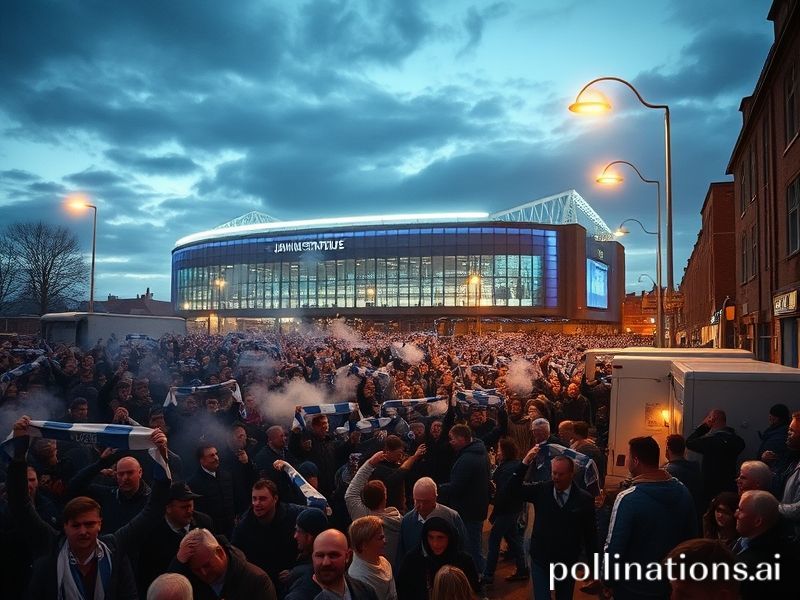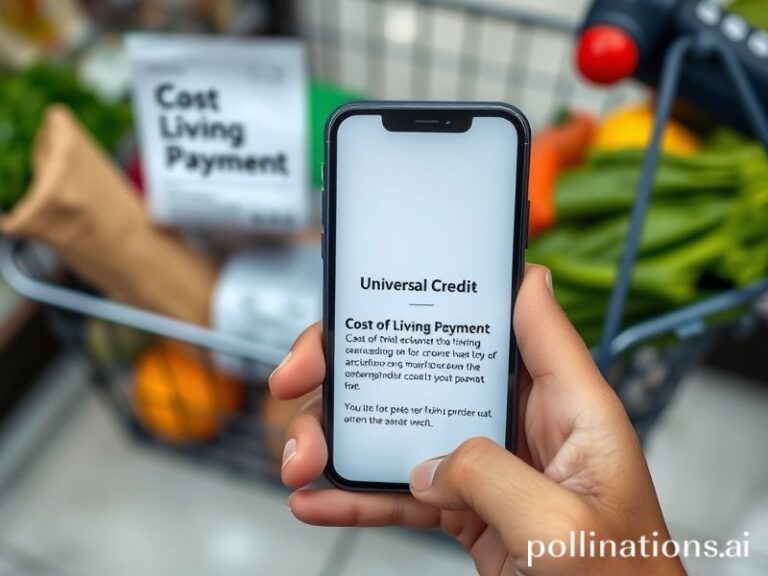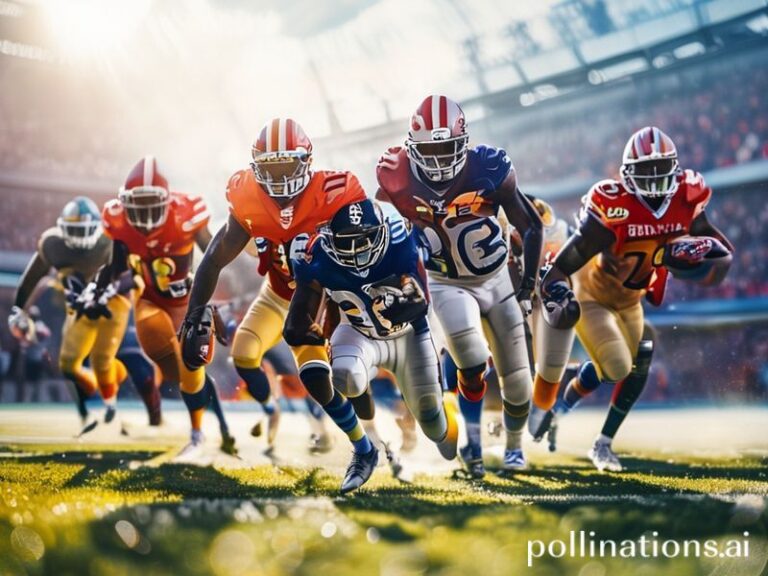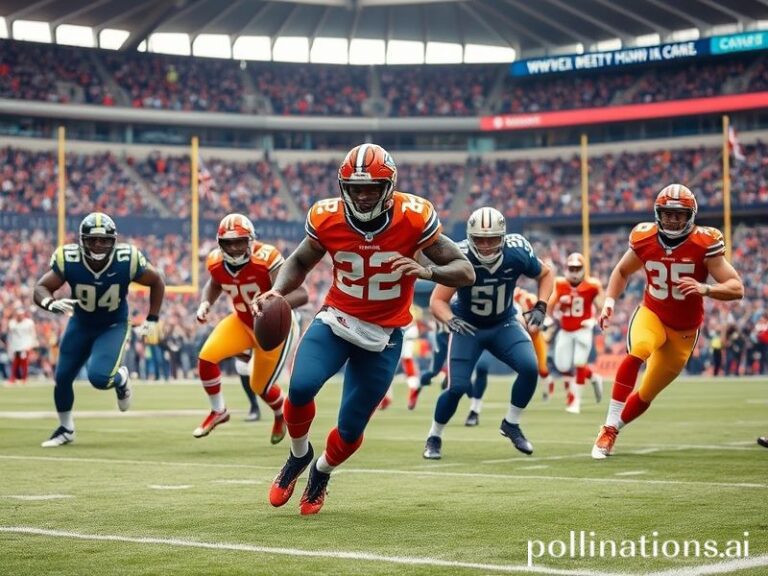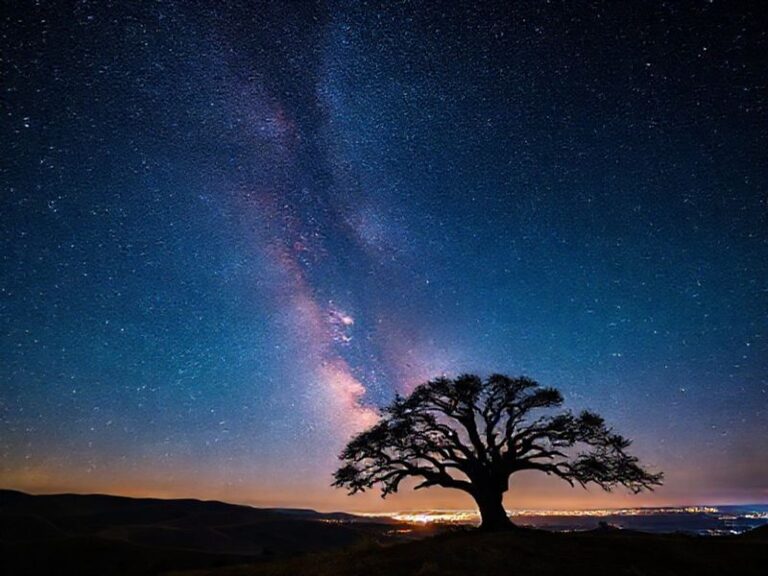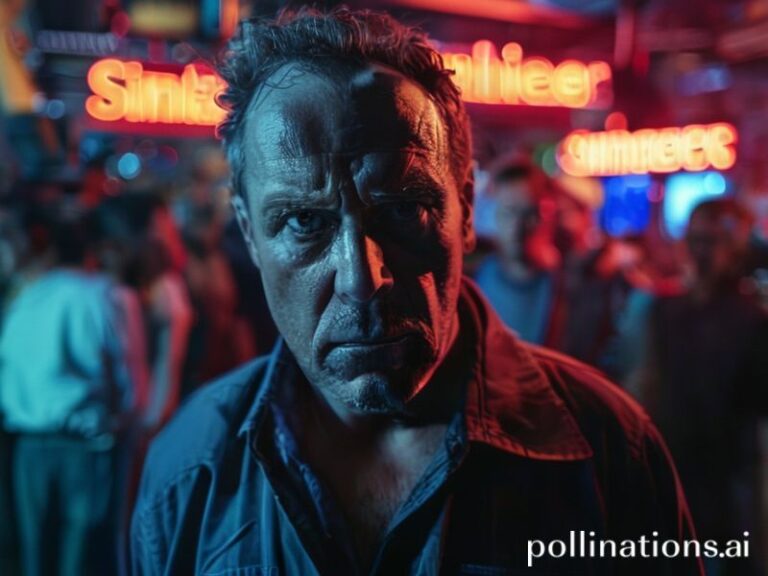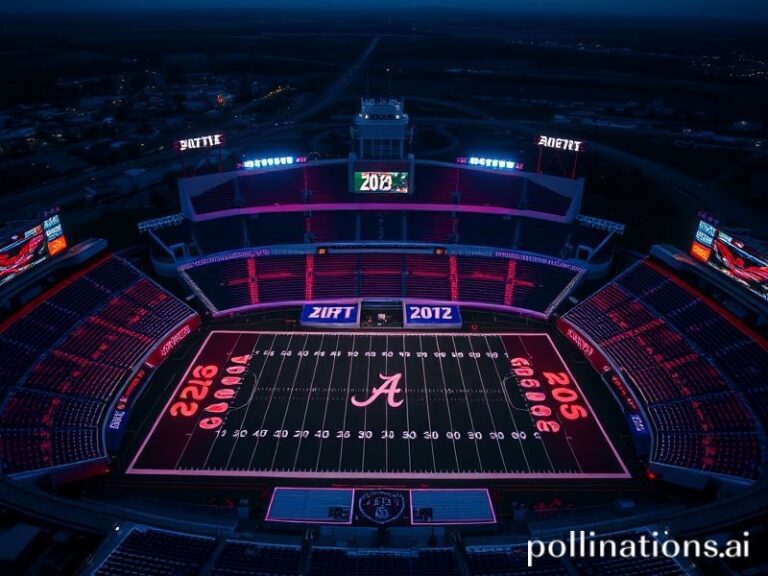Huddersfield Town: The Tiny Yorkshire Club Accidentally Explaining Global Capitalism
Small Town, Big Stage: How Huddersfield Town Became the World’s Accidental Metaphor
There are, according to the United Nations, roughly 10,000 inhabited places on Earth that could credibly call themselves “towns.” Statistically, then, the odds of any single one of them mattering to a rice farmer in Java, a crypto-bro in Singapore, or an arms dealer in Minsk are comfortably worse than the odds of England winning a penalty shoot-out. Yet here we are, still talking—against all reason—about Huddersfield Town, population 162,000, average annual rainfall best described as biblical cosplay.
On paper the club is a modest Championship outfit whose last major trophy predates the invention of colour television. In practice it has become a global Rorschach test: what you see in Huddersfield says more about you than it does about West Yorkshire. To the American venture-capitalist, it’s a distressed asset with “authentic heritage” stamped on the tin—like buying a crumbling Tuscan villa, only the roof leaks heavier and the neighbours sing about cricket. To the Qatari sovereign wealth fund, it’s a handy vehicle for soft power, cheaper per capita than Paris Saint-Germain and, crucially, less likely to attract the attention of a French investigative magistrate. To the neutral, it’s simply proof that late-stage capitalism will eventually slap a betting logo on your childhood.
But the planetary ripple effects keep coming. When Huddersfield unveiled that infamous 2019-20 shirt—blue pinstripes interrupted by a garish sash advertising a bookmaker—global Twitter reacted as if someone had Photoshopped the Mona Lisa into a fast-food uniform. Within hours, the jersey was trending in Jakarta, parodied on Nigerian WhatsApp and used in a Bolivian classroom to illustrate the concept of moral bankruptcy. Somewhere in Silicon Valley, a junior product manager added “accidental viral marketing” to his LinkedIn profile. The shirt was banned by the FA; Paddy Power claimed it was all a “meta-joke”; nobody really believed them, but the stunt still won an advertising award in Cannes. If that isn’t the perfect 21st-century morality tale—sin, repentance, and a gong for creativity—then I’ve been covering the wrong species.
Zoom out and the pattern repeats. Huddersfield’s survival in the Premier League across the 2017-18 season—an act of collective defiance comparable to a hedgehog crossing the M62—was greeted from Lagos to Lahore as proof that the underdog still has a pulse. Al Jazeera ran a segment titled “David’s Tactical Midfield Shape,” complete with heat maps and a quote from a UN under-secretary who’d never heard of Aaron Mooy 24 hours earlier. Meanwhile, Chinese streaming rights for the Terriers briefly outpriced those for AC Milan, because nothing says soft-power diplomacy like watching Christopher Schindler hoof it long against Burnley at 3 a.m. Beijing time.
The broader lesson, for anyone still pretending football is merely sport, is that globalisation has turned even the most parochial outpost into a node in the same nervous system. Your local pie stand is now an NFT opportunity; your club captain is three retweets away from a sponsorship deal with a Malaysian noodle brand. Huddersfield didn’t ask to become a geopolitical metaphor, but that’s the thing about metaphors—they don’t ask permission. You simply wake up one day and discover that a rain-soaked patch of Kirklees has been conscripted into the eternal human drama: greed, hope, and the faint possibility of extra time.
So the next time you see Huddersfield Town trending in Ulan Bator, spare a thought for the absurdity of it all. Somewhere in the stands, an 80-year-old lifelong fan still thinks the biggest issue is the price of Bovril. He hasn’t yet realised that his club has become a mirror for the entire planet: small, damp, occasionally heroic, and perpetually up for sale to the highest bidder. Which, when you think about it, is probably the most honest summary of the modern world you’ll find outside a UN climate report.

